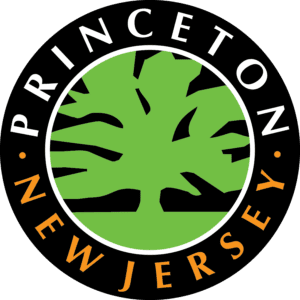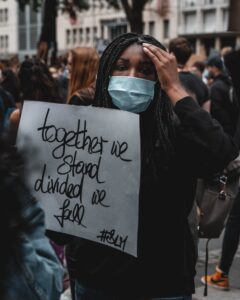 On Friday, Jack Ciattarelli conceded in a very close race, and New Jersey Governor Phil Murphy eked out an official win over the Republican candidate. Similarly, the morning after election day, the Republicans in Princeton’s District 16 Senator and Assembly races had the lead, yet in the end, the winners were all Democrats. Though only 20% of Princeton’s registered voters went to the polls (plus 3,605 mail-ins), in all of these races Princeton overwhelmingly voted Democratic, helping Murphy, Zwicker, Frieman and Jaffer take office.
On Friday, Jack Ciattarelli conceded in a very close race, and New Jersey Governor Phil Murphy eked out an official win over the Republican candidate. Similarly, the morning after election day, the Republicans in Princeton’s District 16 Senator and Assembly races had the lead, yet in the end, the winners were all Democrats. Though only 20% of Princeton’s registered voters went to the polls (plus 3,605 mail-ins), in all of these races Princeton overwhelmingly voted Democratic, helping Murphy, Zwicker, Frieman and Jaffer take office.
Most Princeton Districts, like 9 (in the former borough between 206 and Witherspoon) and 13 (in the Littlebrook neighborhood behind and next to the shopping center), voted strongly for Murphy, yet in Districts 1 (on the western side, off of the Great Road) and 4 (off Mercer Street and around the Institute area), Ciattarelli received 40- 50% of the votes. If you look at the voting statistics, 27% of Princeton votes went to Ciattarelli compared to the 18% of Princetonians that voted Republican Kim Guadagno for Governor in 2017. And that increase is from a Princeton voting base for this general election where only 9.5% of voters were registered Republicans. Does that mean a growing contingent of residents are now challenging the Democratic ideals?
Let’s break it down even further to better understand how party affiliation aligns with political ideologies in Princeton. The famous college town has a reputation as being liberal, but Princeton Perspectives recently surveyed a diverse group of local residents about today’s hot button issues, and the results from more than 100 respondents show the locals don’t always lean left. In fact, sometimes they lean more to the right.
LOCAL POLITICS
 Starting with local politics, there has not been a Republican on the municipal ballot in the last two general elections. Yet when people were asked how they feel about Princeton’s Mayor and Council (all of whom are Democrats), the response was far from supportive. 33% of respondents claim the municipal representatives need Republicans amongst their ranks, so they can see things from multiple vantage points and 25% note the leaders pretend to listen to the community but end up doing what they want. Only 13% feel the local officials really listen to the community and utilize the feedback to affect their decisions. And a mere 5% think they are doing great.
Starting with local politics, there has not been a Republican on the municipal ballot in the last two general elections. Yet when people were asked how they feel about Princeton’s Mayor and Council (all of whom are Democrats), the response was far from supportive. 33% of respondents claim the municipal representatives need Republicans amongst their ranks, so they can see things from multiple vantage points and 25% note the leaders pretend to listen to the community but end up doing what they want. Only 13% feel the local officials really listen to the community and utilize the feedback to affect their decisions. And a mere 5% think they are doing great.
When it comes to the local educational district, the feelings are a bit more mixed. 29% of those surveyed feel that Princeton Public School’s Board of Education (PPS BOE)/Superintendent should reassess their focus, that they are not meeting their family’s needs.
One stated, “the BOE and school administrations don’t reflect the student demographics at all” while another noted “there is so little viewpoint diversity now–everyone has to be a liberal of some stripe or you are a bigot.” There is also concern “the amount expended is outrageous and neighboring districts are rated just as highly without the high expenses per pupil.”
25% of respondents do support the issues PPS BOE and Superintendent are focused on but feel they should be prioritized differently.
“They are doing some things right, some things badly,” noted one.
Meanwhile, 23% that feel the priorities are right in line with their family’s needs.
COVID PROTOCOLS
 When it comes to our schools, 43% of those surveyed favor school mask mandates as well as mandates in some other indoor areas, which tends to be a more liberal-leaning perspective. While 25% share that masks should be worn but never mandated.
When it comes to our schools, 43% of those surveyed favor school mask mandates as well as mandates in some other indoor areas, which tends to be a more liberal-leaning perspective. While 25% share that masks should be worn but never mandated.
“Mask-wearing should depend on the circumstances. In some circumstances it would be foolish to not wear a mask. In others it would be foolish to wear a mask. Educate people and let them decide,” one respondent anonymously states.
In a related issue, nearly half of those surveyed support vaccine mandates – a more democratic ideal – with 25% citing it should be up to the individual.
“I am pro vaccine, and whether they should be mandated depends upon the situation. I do not care to shame people who refuse to get vaccinated,” Kurt Tazelaar shared in his survey.
RACE AND SOCIOECONOMICS
 Vaccinations aside, healthcare disparities became apparent when the pandemic struck. It was particularly noted that Black Americans were hit hard. Some feel strongly that is tied back to systemic racism while others feel there are other factors at play. And how does this translate beyond healthcare and with regards to other aspects of race in our society?
Vaccinations aside, healthcare disparities became apparent when the pandemic struck. It was particularly noted that Black Americans were hit hard. Some feel strongly that is tied back to systemic racism while others feel there are other factors at play. And how does this translate beyond healthcare and with regards to other aspects of race in our society?
32% of those we surveyed feel racism is still systemic in the US and needs to be addressed and 23% feel racism has been improving over time but is still a major concern. Meanwhile, a comparable 28% feel racism has been exacerbated due to the current anti-racism agendas.
“All three: still systemic and needs to be addressed, but it has been improving over time, although it is exacerbated due to the current anti-racism agendas,” noted one person.
When it comes to deciding how to address racism towards Black and Brown communities more than one-quarter of those surveyed believe schools should teach empathy/upstanding but not focus on just race while 13% think the classes should focus on racial literacy. To affect those beyond high school, approximately 15% want diversity training in the workplace and to continue affirmative action – while a close 11% think affirmative action should stop, with a stronger focus on merit.
It appears only 5% of those surveyed feel that to address racism, our country needs to make reparations to Black descendants of slaves and a similar 5% want to eliminate all attributions to figures that owned slaves or were involved in Confederate causes.
The past year and a half of the pandemic has also highlighted that there are strong socioeconomic differences across America. When asked how to address the gap in this country, there were a variety of thoughts. More than 40% believe the gap can shrink if the US better monitors public/social services to help direct change and ensure they’re not abused, provide better job training for those on public support and increase the minimum wage. About one-quarter feel offering Medicare health coverage to all that want it and providing free college tuition/loan reimbursement will help those with tight or low incomes.
While some blame the top earners and think the US needs to “close the loopholes used by the top wealthiest” others think it also comes from those getting aid, stating “we need to make sure people stop abusing the system.” So, how does that happen?
“Universal healthcare, universal childcare and some combination of higher taxes on the wealthy to be dedicated to education and job training along with an increase in the minimum wage,” shares one anonymous respondent. Another notes we need to “improve education from Kindergarten on up for everyone. Charter schools can help. Improve family structure. Talk realistically and honestly about the gap. Live within our means, including Federal, state and local governments.”
And one survey respondent believes there will always be an economic divide.
“Realize that the freest, most prosperous societies always have gaps.”
As long as gaps remain, 56% of those we surveyed feel people with higher incomes should be taxed at a higher rate, which is a more liberal school of thought. 29%, though, feel they should be taxed at the same rate as others. Many offer that it’s not so much a change in tax rate, but the US needs a better way to get people to actually pay and contribute more stateside.
“I don’t believe we should disincentivize people from making more money. Since the middle-ages, governments have wrestled with how to get people to pay their taxes while people try to avoid paying them. We should have incentives to keep the money in the US economy and keep contributing to charity, etc,” someone shared anonymously.
IMMIGRATION
 What about using American tax money to support those who enter the country without legal documentation? Do they deserve to stay here? The local residents we surveyed are more conservative when it comes to immigration. Only 2% feel everyone who comes to the US border should be let in and allowed to stay, regardless of legal status. 45% believe we can’t just let everyone in but do need a system that allows some that cross over illegally to stay, while a close 40% state they are firm about tightening the borders and no one should be let in unless they come in through legal means.
What about using American tax money to support those who enter the country without legal documentation? Do they deserve to stay here? The local residents we surveyed are more conservative when it comes to immigration. Only 2% feel everyone who comes to the US border should be let in and allowed to stay, regardless of legal status. 45% believe we can’t just let everyone in but do need a system that allows some that cross over illegally to stay, while a close 40% state they are firm about tightening the borders and no one should be let in unless they come in through legal means.
So how should we handle immigration? There are some who think it goes beyond immigration policy, as one anonymous respondent explains.
“We need better foreign policy to stabilize the world and help those fleeing violence, starvation, poverty and threat of death to remain in their countries safely.”
If an adult or child without legal papers has crossed the border and is living in the US about 1/3 third of people want the US to support them and offer a pathway to citizenship. Additionally, for children, 36% say that they should be allowed to stay in the US if they have a US relative or sponsor to support them. However, 28% feel adults should immediately be sent back at their own or their government’s expense and 18% feel that children found here without legal status should also be sent back.
“The children are a hard one. We can’t just send them across the border with no one to accept them on the other side. But they still need to be sent back,” someone shared in our survey. Another added, children should be “returned to their home country after their safety is ensured.”
For adults, however, many stated there should also be some provisions. For example, one anonymous respondent added adults should “be thoroughly vetted by the government, assisted on a short time limited basis” while another share they should “be detained until their noncriminal status is confirmed (ignoring that entering illegally is criminal) and there is a compelling reason to allow them to stay, e.g., targeted persecution, not simply, ‘I don’t feel safe’.”
CLIMATE CHANGE
 Another national issue that many feel strongly about is climate change. While President Biden was recently meeting with world leaders to discuss the government’s role, the majority of those surveyed here in Princeton told Princeton Perspectives they believe climate change is destroying our world and needs to be addressed immediately. Developing more alternative sources of energy, gradually cutting back on our reliance on fossil fuels to become more reliant on other means of power and offering tax credits to those that cut their carbon footprint were the predominant ways people think things can improve.
Another national issue that many feel strongly about is climate change. While President Biden was recently meeting with world leaders to discuss the government’s role, the majority of those surveyed here in Princeton told Princeton Perspectives they believe climate change is destroying our world and needs to be addressed immediately. Developing more alternative sources of energy, gradually cutting back on our reliance on fossil fuels to become more reliant on other means of power and offering tax credits to those that cut their carbon footprint were the predominant ways people think things can improve.
“Government should become more involved in incentives to move from fossil fuels to renewable energy. There is no one solution, and we will need fossil fuels for the foreseeable future,” explains Dennis Scheil, who answered the survey. “But we need to set aggressive targets and do what we can to meet them. This is a global issue requiring global commitments. We know there will be other nations that ignore the climate issue, and we should use whatever means necessary to sanction these nations.”
China and India were mentioned in several responses as countries that need to be part of the global solution to affect change, yet even with their cooperation, a handful of respondents don’t believe the solutions on the table are very constructive.
MIDDLE EASTERN POLITICS
 Speaking of countries in the eastern hemisphere, Israel is one that is largely supported by those we surveyed. Since the recent conflict between Israel and the Palestinians this past May, the region has received renewed attention. Yet, when asked how they feel with regards to Israel, an overwhelming majority of people still feel the country is an ally that should have our support. 41% stand by Israel but have concern about the government and how it treats Palestinians while 36% stand by Israel always.
Speaking of countries in the eastern hemisphere, Israel is one that is largely supported by those we surveyed. Since the recent conflict between Israel and the Palestinians this past May, the region has received renewed attention. Yet, when asked how they feel with regards to Israel, an overwhelming majority of people still feel the country is an ally that should have our support. 41% stand by Israel but have concern about the government and how it treats Palestinians while 36% stand by Israel always.
“It is our only Democratic ally in the region and should be treated like all of our Democratic allies in other regions, i.e., express our concerns, if any, and allow Israel to determine its policies,” an anonymous respondent expresses. “I believe that this question itself exposes the antisemitic underlying attitude in this, and other “liberal” towns. Will I be asked about France and their treatment of Moslems, Australia and the treatment of aborigines, need I go on?”
Only 5% of respondents have a more progressive viewpoint, feeling Israel is mistreating Palestinians and must be stopped at all costs. That coincides with 6% who support BDS (Boycott, Divest, Sanction) to pressure Israel to compromise and resolve things with the Palestinians and 8% who want the US to stop funding Israel’s defense/military systems. In the end, 41% feel the US needs to continue supporting Israel while pushing for a two-state solution.
While far-left liberals in Congress have pushed to pull support from Israel, it is clear from our results that the representative voices in our survey don’t agree. The responses to some of the hot button issues we asked about share more liberal perspectives, yet there are a lot of moderate and even conservative-leaning viewpoints as well.
As an ivy-league town, many Americans may consider Princeton liberal. And though the voters tend to lean heavily Democrat (58% of current voters are registered Democrats), we now know there is a lot of individuality here when it comes to ideology and the issues.

Lisa Jacknow spent years working in national and local news in and around New York City before moving to Princeton. Working as both a TV producer and news reporter, Lisa came to this area to focus on the local news of Mercer County at WZBN-TV. In recent years, she got immersed in the Princeton community by serving leadership roles at local schools in addition to volunteering for other local non-profits. In her free time, Lisa loves to spend time with her family, play tennis, sing and play the piano. A graduate of the S. I. Newhouse School of Public Communications at Syracuse University, Lisa was raised just north of Boston, Massachusetts but has lived in the tri-state area since college. She is excited to be Editor and head writer for Princeton Perspectives!
